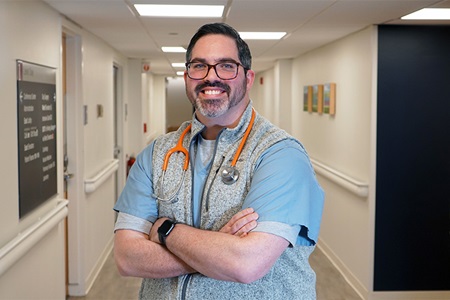Healthcare 360: Clinical Pharmacies and the Integrated Model of Care
Podcast: Clinical Pharmacies and the Integrated Model of Care
On this week’s episode of Healthcare 360, Dr. Rob Fields sits down with Sherman Zemler Wu, Vice President of Pharmacy Strategy and Business Development for Beth Israel Lahey Health (BILH), John Marshall, Vice President of Clinical Pharmacy Services at BILH, and Neil Gilchrist, Vice President of Pharmacy Business Operations at BILH, to discuss clinical pharmacy and general policy.
All About Clinical Pharmacy
Discussing clinical pharmacy with his guests, Dr. Fields brings up the fact that many don’t know what a clinical pharmacist does. Marshall explains that for many years, clinical pharmacists would make rounds with doctors and nurses to meet with critically ill patients and make recommendations on drugs and dosages as well as evaluate drug interactions and drug disease interactions. Now these pharmacists are present in primary care clinics to work with providers.
“Practices and these pharmacists are there as the medication experts to work with the multidisciplinary team to both see patients independently,” he says. “Most states in the United States allow for what we call ‘collaborative drug therapy management’ which, under the guidance of a physician, a pharmacist is able to prescribe, adjust medications and discontinue medications for specific chronic disease states.”
This leads to dramatic benefits for health improvement and ultimately allows physicians to see new or more complex patients when a clinical pharmacist is managing their patients with chronic health conditions.
Gilchrist then adds, “The integrated delivery network and pharmacy also is very much in a health system enterprise.”
He continues, “The traditional model is a standalone community pharmacy that may not be connected to that patient’s care until the point of discharge. Though there are, I would say, clinical pharmacists at every step there whether it’s in the hospital, in the ambulatory clinic, or are very specialized specialty pharmacists that are providing that high touch for some really complicated medication.”
An Integrated Model of Care
Speaking about the value a clinical pharmacy provides, Dr. Fields turns to Gilchrist to expand on the important of integration.
He says, “I mean, I think that’s the big value here of that integrated arm is that the pharmacy team at the retail pharmacy at Beth Israel Lahey Health or our specialty pharmacy is communicating and documenting in the same medical record for that patient and has direct connection to the care team, the provider to the clinical pharmacist that may be involved in that patient care in the ambulatory clinic.”
He continues, “So that’s an important aspect of that integrated model is there’s this connection, this flow of information back and forth between the pharmacy services as well as the direct care team in the clinic which may include the clinical pharmacists as well. That’s where the value comes, I believe.”
Wu adds, “We have access directly to the doctors, so you can actually reach somebody and talk to somebody on the phone because we’re in the global address book. So there’s a way to connect much faster when problems happen and resolve them much faster than you can with an external pharmacy.”
Every other week, we’ll chat with a leading expert in healthcare to learn about the many challenges and opportunities facing the industry. Listen to the full conversation with Wu, Marshall, and Gilchrist here, and check in regularly for new episodes of Healthcare 360.



